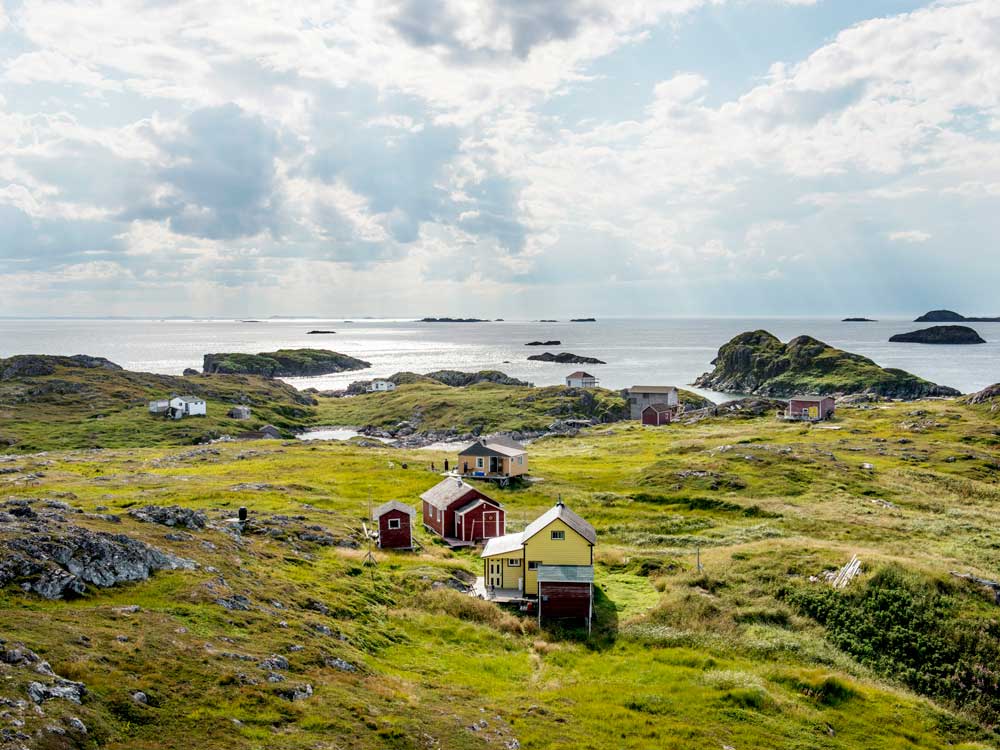Growing Impact
Back in 2004, Commerce students at Smith School of Business were introduced to an exciting new option to enhance their studies. By attending lectures and completing field assignments, they would earn credits toward a Certificate in Corporate Social Responsibility, a credential offered in addition to their Commerce degree.

Little Fogo Island. Photo Alex Fradkin.
These days, “social impact” has almost fully subsumed “corporate social responsibility” in the corporate lexicon. This broad space — encompassing issues of sustainability, community resilience, diversity and responsible leadership, among others — represents an area of growing importance for Smith.
CSI’s Director, Tina Dacin, welcomes the increased focus on social impact issues. “Our role is to highlight and accentuate the school’s core values and identity,” she says. “We don’t teach students how to be good. The goodness is in people. We provide opportunities to bring it out.”
The Centre, in fact, helps Smith students and faculty explore the relationship between business and society in a unique way, through the lens of education, research, and advocacy. And the range and depth of activities keep increasing.
Growth has been most evident within the Certificate program itself. Initially open only to Commerce students, today it is a popular option for those in five of the school’s ten graduate programs. This year, more than 500 students will invest more than 4,500 hours in community volunteering, thereby earning a highly valued Certificate in Social Impact.
In 2017, CSI launched specialization tracks that allow students to dive more deeply into social-impact opportunities in the areas of social finance, social entrepreneurship and social innovation, values-based leadership and sustainability.
The program certainly has made an impact on students. “When you dig a little deeper and talk to some insightful people,” says Nadia Credico, BCom’16, “you learn that it is possible to work in any industry and still make a positive difference while also having a job that reflects what you’re passionate about.”
The Centre has also upped its game in experiential learning. Students can apply their new skills and knowledge at a for-profit or nonprofit organization, thanks to the Kehoe Summer Internship and the Raya Aralihalli Memorial Fund Summer Internship programs. As well, the Centre supports students who wish to enter global competitions promoting social entrepreneurship, such as the Hult Prize, which, in 2017, included Smith teams competing in Dubai, U.A.E., and London, U.K.
The Centre is also looking beyond Smith. Last Fall, it launched the Social Finance Academy for professionals, which attracted 33 participants and generated a waiting list of more than 50 individuals.
This year, the Centre is rolling out its Certificate in Social Impact for Professionals by offering two-day professional development programs in leadership and social finance.
And in 2018, a series of multi-day programs will be launched to increase opportunities for leadership diversity. The first program will be geared to the LGBT+ community, with future programs targeting women, Indigenous peoples, and newcomers to Canada.
“Our programs are about market-building, ideation, and leading with values,” says Tina. “We want to equip participants with thought leadership and the best set of skills and experiences to lead the way to a better world.”
Alongside these innovative programs is a new focus on extending and deepening the Centre’s research on social innovation and social entrepreneurship. “We plan to do this through examining community resilience and place-based research,” says Tina. “We have a number of ongoing projects on Aboriginal communities and the role of social enterprise as well as projects in rural and remote communities such as Fogo Island.”

